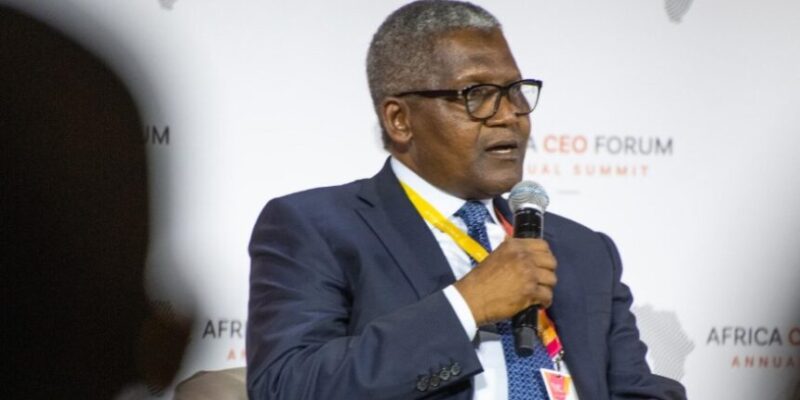
Africa’s richest man and industrialist, Alhaji Aliko Dangote, has admitted that if he had fully understood the scale and challenges involved in building his $20 billion petroleum refinery, he might not have embarked on the project.
Dangote made this revelation while receiving a delegation from the Nigerian Society of Engineers (NSE), Lagos Branch, at the Dangote Petroleum Refinery in Ibeju-Lekki, Lagos State.
“Honestly, if we had fully understood the magnitude and challenges involved, we may not have even attempted it,” he said. “But it is because we didn’t know what we were into initially—and the courage, or maybe naivety—that got us this far.”
He described the refinery as a project of unprecedented size in Africa, capable of handling over 600 product vessels and 240 crude oil tankers annually. He highlighted major engineering and environmental challenges, such as swampy terrain, extensive land clearing, and dredging of 65 million cubic metres of sand from 20 kilometres offshore — all executed with consideration for local communities and their livelihoods.
Dangote emphasized his commitment to building local capacity, stating that the majority of the workforce on the refinery project were Nigerians, including fitters, welders, and engineers.
“Eighty-five per cent of the commissioning work was done by Nigerians,” he noted. “It’s not because I’m an engineer, but because they have proven to be among the best.”
He said the initial plan to employ 50,000 expatriates was revised, with only 12,000 to 14,000 foreign workers eventually engaged. The rest, he proudly noted, were Nigerian professionals.
He assured the NSE delegation that more large-scale projects were on the horizon and reiterated his goal of empowering local engineers and positioning Nigeria as an exporter of technical expertise, not just crude oil.
“Even when we don’t have enough jobs to give, we must still train people. Skills are assets—whether used here or abroad,” Dangote said.
Chairman of the NSE Lagos Branch, Mrs. Olukorede Kesha, praised the refinery as an engineering milestone and Africa’s first of its kind.
“We are extremely proud of what we have seen. Nigerians are taking the lead here,” she said. “If we have more of this kind of development in Nigeria, unemployment and poverty would be a thing of the past.”
The NSE team also toured the Lagos-Calabar coastal highway project, describing it as a monumental infrastructure development and a symbol of national progress.

Comments